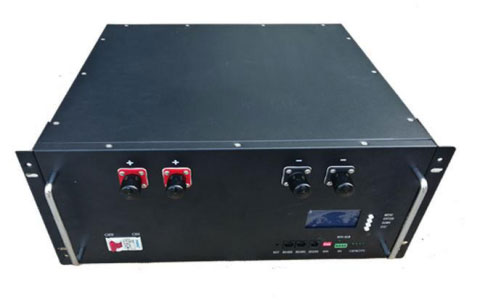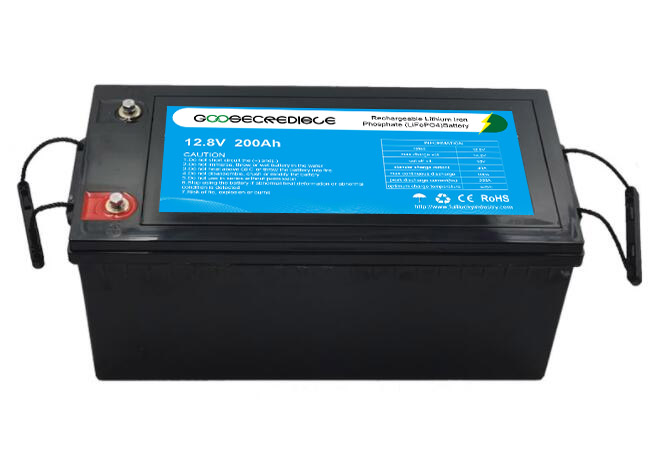중국에서 적합한 Lifepo4 배터리 제조업체 선택: 주요 고려 사항
Choosing the right Lifepo4 battery manufacturer in China can be a daunting task, given the abundance of options available. However, by considering the following key factors, you can narrow down your search and find a manufacturer that best meets your needs.
Quality: Quality should be your top priority when selecting a Lifepo4 battery manufacturer. Look for a manufacturer that has a proven track record of producing high-quality batteries that are reliable, durable, and perform consistently. Check for certifications such as ISO 9001, UL, and CE, which indicate that the manufacturer follows strict quality control standards.
Technology: Technology is a crucial factor in battery manufacturing. Choose a manufacturer that uses the latest technology and equipment to produce Lifepo4 batteries. A manufacturer with a strong R&D team can develop and produce more advanced and efficient batteries, which can help you stay ahead of the competition.
Production Capacity: Consider the production capacity of the manufacturer. Ensure that they can meet your requirements in terms of volume, lead times, and customization. Look for a manufacturer that can scale up or down production as per your demand.
Price: Price is an essential consideration when choosing a Lifepo4 battery manufacturer. Compare prices of different manufacturers to ensure you are getting a fair deal. However, keep in mind that quality and technology should be your primary considerations, and choosing a low-cost option that compromises on quality may end up costing you more in the long run.
Customer Service: Choose a manufacturer that provides excellent customer service. They should be responsive, provide timely updates, and be willing to work with you to resolve any issues that may arise. Good communication is essential, especially when working with a manufacturer that is located overseas.
Environmental Responsibility: Consider the manufacturer’s environmental responsibility. Choose a manufacturer that uses eco-friendly materials and processes and complies with international environmental standards. This not only helps protect the environment but also enhances your company’s image as a responsible and sustainable business.
Reputation: Look for reviews and testimonials from other customers who have worked with the manufacturer. This can give you valuable insights into their experience, quality of products, and customer service. A manufacturer with a good reputation in the industry is likely to be a reliable partner.
In conclusion, selecting the right Lifepo4 battery manufacturer in China requires careful consideration of quality, technology, production capacity, price, customer service, environmental responsibility, and reputation. By keeping these key factors in mind, you can make an informed decision and choose a manufacturer that best meets your needs.
Time: 2023-8-9
In today's fast-paced world, reliable and long-lasting power sources are a necessity. Whether it's for our smartphones, laptops, or even vehicles, we rely heavily on batteries to keep us connected and on the move. One such battery that has gained popularity in recent years is the 100Ah lithium battery, specifically the Lithium Iron Phosphate (LiFePO4) variant. The 100Ah LiFePO4 battery offers several notable advantages over traditional lead-acid batteries. Firstly, its energy density is significantly higher, allowing for a more compact and lightweight design. This means that devices and vehicles powered by the 100Ah LiFePO4 battery can be smaller and more portable without compromising on power. Another advantage of the 100Ah LiFePO4 battery is its long cycle life. Unlike lead-acid batteries that degrade over time, LiFePO4 batteries can withstand thousands of charge and discharge cycles without losing their capacity. This makes them ideal for applications that require frequent and prolonged use, such as electric vehicles and renewable energy systems. Additionally, the 100Ah LiFePO4 battery has a faster charging rate compared to lead-acid batteries. This means that devices can be charged more quickly, reducing downtime and increasing productivity. Furthermore, LiFePO4 batteries have a higher tolerance for high charge and discharge rates, making them suitable for applications that require bursts of power, such as electric bikes and power tools. One of the most significant advantages of the 100Ah LiFePO4 battery is its exceptional safety profile. Unlike other lithium-ion batteries, LiFePO4 batteries are inherently stable and less prone to thermal...
Time: 2023-7-13
Over the past few decades, military equipment has undergone a significant transformation, largely due to advancements in technology. One of the most groundbreaking developments in recent years has been the revolution of lithium batteries. These lightweight, high-capacity power sources have completely transformed the capabilities of military equipment, leading to enhanced performance, increased operational efficiency, and improved mobility. Lithium batteries are known for their high energy density, allowing them to store more power in a smaller and lighter package compared to traditional batteries. This characteristic alone has revolutionized the military equipment industry, as it has enabled the development of smaller, more maneuverable devices without compromising functionality. Soldiers no longer need to carry heavy and bulky equipment, as lithium batteries have allowed for the miniaturization of various devices, from communication systems to night vision goggles. In addition to their compact size, lithium batteries have also significantly extended the operational life of military equipment. The long-lasting power supply provided by these batteries ensures that soldiers can rely on their equipment for extended periods without the need for frequent recharging. This has proven to be particularly valuable in remote areas or during long missions where access to power sources is limited. Moreover, the prolonged battery life has increased the overall efficiency of military operations, as soldiers can remain focused on their tasks without the constant interruption of battery changes or recharges. Another advantage of lithium batteries is their ability to deliver high power output. This characteristic has greatly benefited military equipment,...
Time: 2023-7-29
In recent years, there has been a significant increase in the demand for batteries. From portable electronics to electric vehicles, batteries have become an essential part of our everyday lives. This growing demand has led to the rise of the battery industrial sector, which is now playing a crucial role in shaping the future of energy storage. With the increasing concern for global warming and the need to reduce greenhouse gas emissions, there is a growing emphasis on renewable energy sources. However, one of the major challenges with renewable energy is the intermittent nature of sources such as solar and wind. This is where batteries come into play. They provide a reliable and efficient way to store excess energy generated during peak times and release it during periods of low production. The battery industrial sector is not limited to just one type of battery. There are various types of batteries available, each with its own unique characteristics and applications. One of the most common types is the lithium-ion battery, which is widely used in portable electronics and electric vehicles. These batteries offer high energy density, long cycle life, and low self-discharge rates, making them ideal for applications that require a compact and lightweight power source. In recent years, there have been significant advancements in battery technology, leading to the development of more efficient and cost-effective batteries. For instance, researchers are working on solid-state batteries, which offer higher energy density and improved safety compared to traditional lithium-ion batteries....
Time: 2023-6-20
As a car owner, it is important to know the basics of taking care of your car. One of the most crucial components of a car is the battery. The battery provides power to the engine, starter, and other electrical systems of the car. However, like any other car part, the battery can also wear out over time and may require maintenance. One question that often arises is whether it is possible to add water to a car battery. The answer is yes, but there are some important things to keep in mind. Firstly, not all car batteries require water. Older types of batteries, such as lead-acid batteries, often require water to function properly. These types of batteries have removable caps on the top that allow access to the cells inside. If the water level inside the cells is low, adding distilled water can help to maintain the proper electrolyte level. However, newer types of batteries, such as maintenance-free batteries, do not require water. These batteries are sealed and do not have removable caps. Adding water to a maintenance-free battery can cause damage and void the warranty. If your car battery does require water, it is important to use distilled water. Tap water contains minerals and impurities that can cause damage to the battery. Distilled water, on the other hand, is free of impurities and minerals, which makes it safe to use. To add water to a car battery, first, make sure the car is...
Time: 2023-7-9
In today's rapidly advancing world, technology has become an integral part of our everyday lives. From smartphones to electric cars, the demand for portable and efficient energy storage has never been higher. And at the heart of this technological revolution lies the lithium-ion battery, the powerhouse that fuels our modern world. The development of the lithium-ion battery can be traced back to the 1970s when scientists discovered that lithium, the lightest metal on Earth, had the potential to store large amounts of energy. It wasn't until the 1990s that commercial lithium-ion batteries were introduced, and since then, they have become the go-to choice for a wide range of applications. One of the main reasons for the widespread adoption of lithium-ion batteries is their high energy density. With the ability to store a significant amount of energy in a small and lightweight package, lithium-ion batteries have revolutionized the way we power our devices. Whether it's a smartphone that needs to be charged multiple times a day or an electric vehicle that requires long-range capabilities, lithium-ion batteries provide the necessary power without weighing us down. Another key advantage of lithium-ion batteries is their low self-discharge rate. Unlike traditional rechargeable batteries, which tend to lose their charge over time, lithium-ion batteries can retain their energy for extended periods without significant loss. This makes them ideal for applications where long-term storage is required, such as emergency power backup systems or renewable energy storage. Furthermore, lithium-ion batteries have a high charge/discharge...
Time: 2023-5-12
Lithium Iron Phosphate (LiFePO4) batteries are a type of rechargeable battery that have been gaining popularity in recent years. These batteries are known for their high energy density, long life cycle, and safety. As a result, they are commonly used in a variety of applications, including electric vehicles, solar energy storage systems, and portable electronics. One of the main benefits of LiFePO4 batteries is their long life cycle. These batteries can typically be charged and discharged hundreds or even thousands of times without experiencing a significant decrease in capacity. This means that they can last for many years, making them a cost-effective solution for many applications. Another benefit of LiFePO4 batteries is their safety. Unlike some other types of rechargeable batteries, LiFePO4 batteries are not prone to overheating or catching fire. This makes them a safer choice for applications where safety is a concern. Despite these benefits, LiFePO4 batteries can be more expensive than other types of rechargeable batteries. This is due in part to the fact that they require more expensive materials to manufacture. However, as the demand for LiFePO4 batteries increases and production scales up, prices are expected to come down. Currently, the cost of LiFePO4 batteries can vary widely depending on a number of factors, including the size and capacity of the battery, as well as the brand and manufacturer. In general, however, LiFePO4 batteries are more expensive than lead-acid batteries and other types of rechargeable batteries. Despite their higher cost,...
Time: 2023-4-22
The rated capacity of a starter battery indicates the amount of electrical energy that the battery can deliver over a certain period of time. This is expressed in ampere-hours (Ah) and is a measure of the battery's ability to provide a sustained current flow. In practical terms, the rated capacity of a starter battery determines how long the battery can provide power to start an engine or power other electrical components. A higher rated capacity means the battery can deliver more energy and therefore last longer before needing to be recharged. However, it's important to note that the rated capacity of a starter battery is not the same as its cranking power or ability to start an engine. Cranking power is measured in cold cranking amps (CCA) and is the maximum amount of current the battery can deliver for a short period of time, usually around 30 seconds, at a specified temperature. While a high CCA rating is important for starting an engine, the rated capacity of the battery is more relevant for applications where the battery is used to power electrical components for an extended period of time, such as in marine or RV applications. Overall, the rated capacity of a starter battery is an important specification to consider when selecting a battery for your application. It determines how long the battery can provide power before needing to be recharged and is an important factor in determining the overall performance and lifespan of the battery....
Time: 2023-12-20
When it comes to outdoor adventures, having a reliable power source is crucial. Whether you are camping, boating, or RVing, having a lithium camper battery can make all the difference in ensuring a comfortable and convenient experience. With their impressive power capabilities and long-lasting performance, these batteries are becoming increasingly popular among outdoor enthusiasts. One of the main reasons why lithium camper batteries have gained such popularity is their high energy density. Unlike traditional lead-acid batteries, lithium batteries can store more energy in a smaller and lighter package. This is important for outdoor enthusiasts who are constantly on the move and need to save space in their vehicles. Additionally, the lightweight nature of lithium batteries makes them easier to handle and install, reducing the overall hassle of setting up your power system. Another significant advantage of lithium camper batteries is their ability to provide a consistent and reliable power supply. These batteries are designed to maintain a steady voltage output throughout their entire discharge cycle. This means that even as the battery drains, you can expect a consistent power supply, ensuring that your devices and appliances operate smoothly. This is particularly important when it comes to sensitive electronic equipment such as smartphones, laptops, or refrigerators. Moreover, lithium camper batteries have an impressive lifespan. Compared to traditional lead-acid batteries, which typically last for two to three years, lithium batteries can withstand up to ten years of regular use. This long lifespan not only saves you money in the...





















